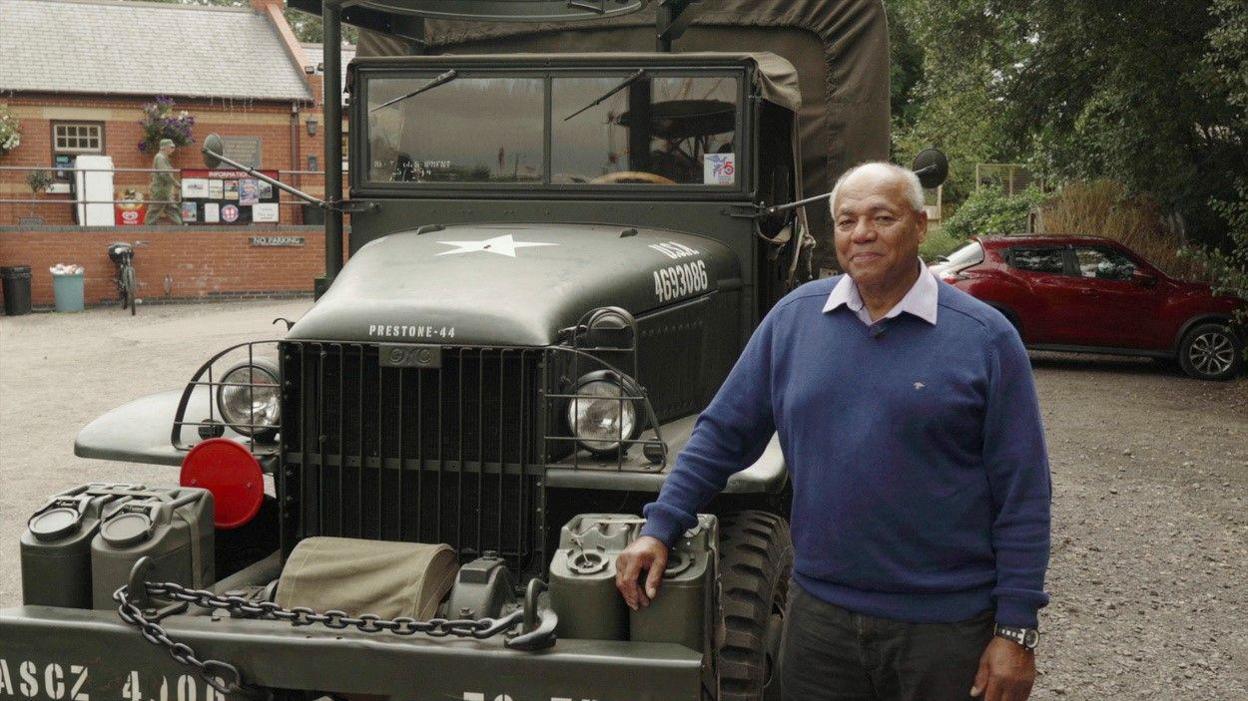Meet the dogs of war - and their human handlers
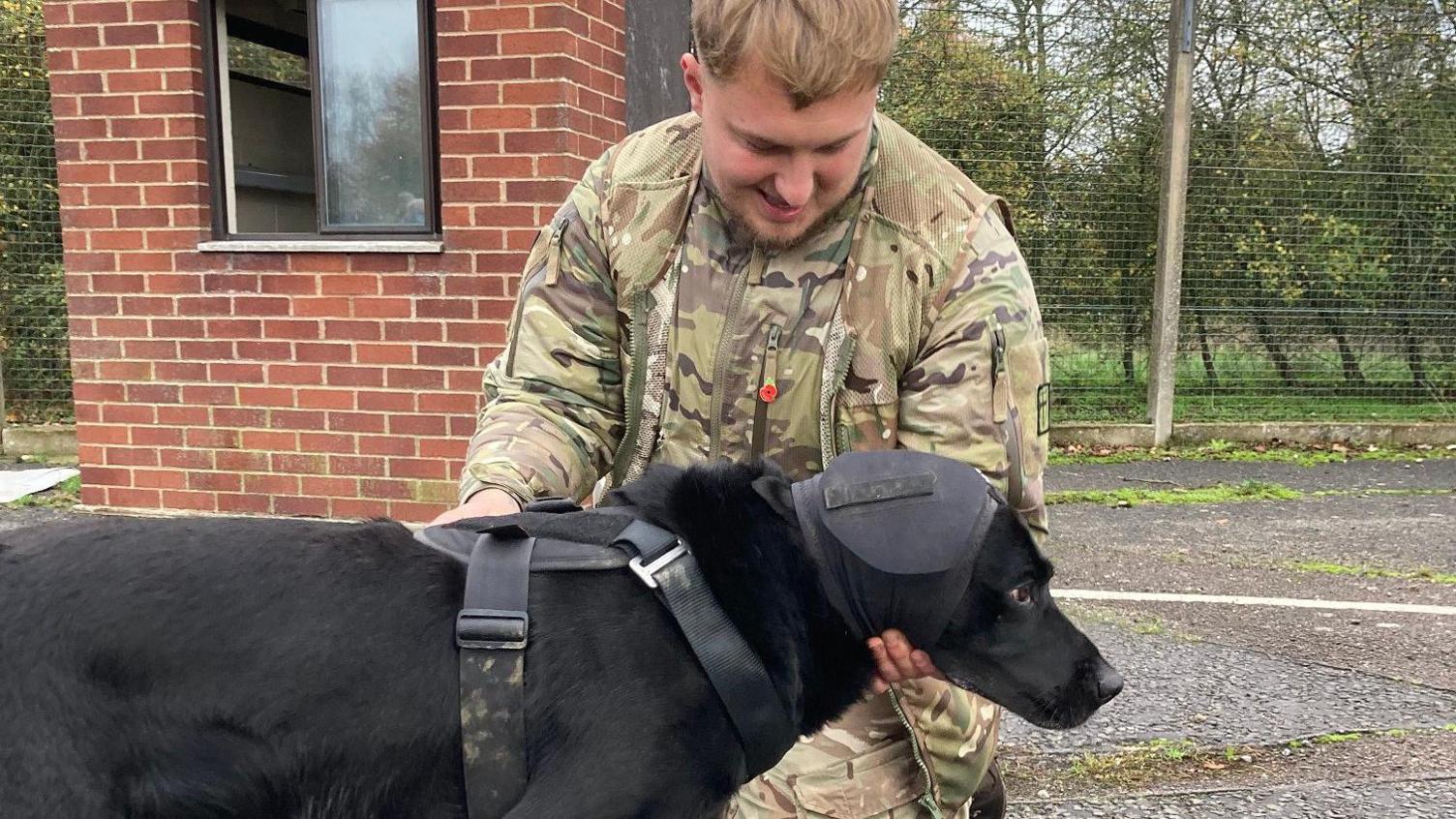
Dogs have to train to use kit like ear defenders and harnesses
- Published
Meet Rutland's dogs of war.
The Ministry of Defence's canine cohort does not so much go on walkies as on manoeuvres.
Based at St George's Barracks in North Luffenham, Rutland, are the 1st Military Working Dog Regiment's animals and handlers.
Facing deployment at home and overseas, the dogs need to be kitted out with more than just a lead - so they need to be trained to use equipment from boots and goggles to ear defenders to flotation jackets ready to face any potential danger.
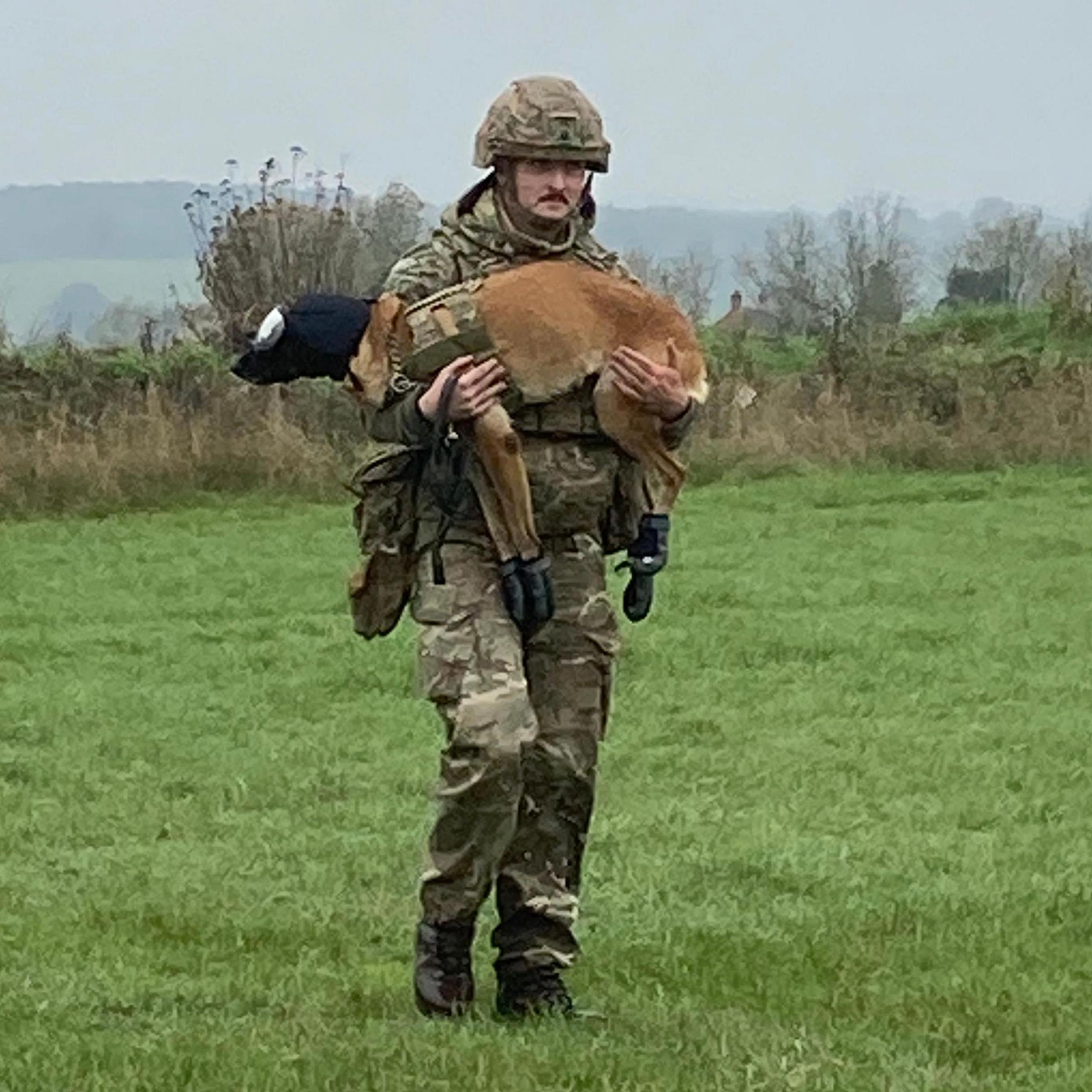
Wherever the dogs go - so do their handlers
And wherever the dogs deploy, their human handlers go with them.
Andy Rose, regimental operations officer, said: "The kit's really important for the dogs and what they do.
"They can be deployed with a whole host of units, including the infantry, engineers and all sorts within the Army - and that means the dogs will be put in relatively dangerous situations, the same as the human soldiers are.
"We're looking to increase the survivability of the dog and also make sure the welfare of the dog is not being impacted."
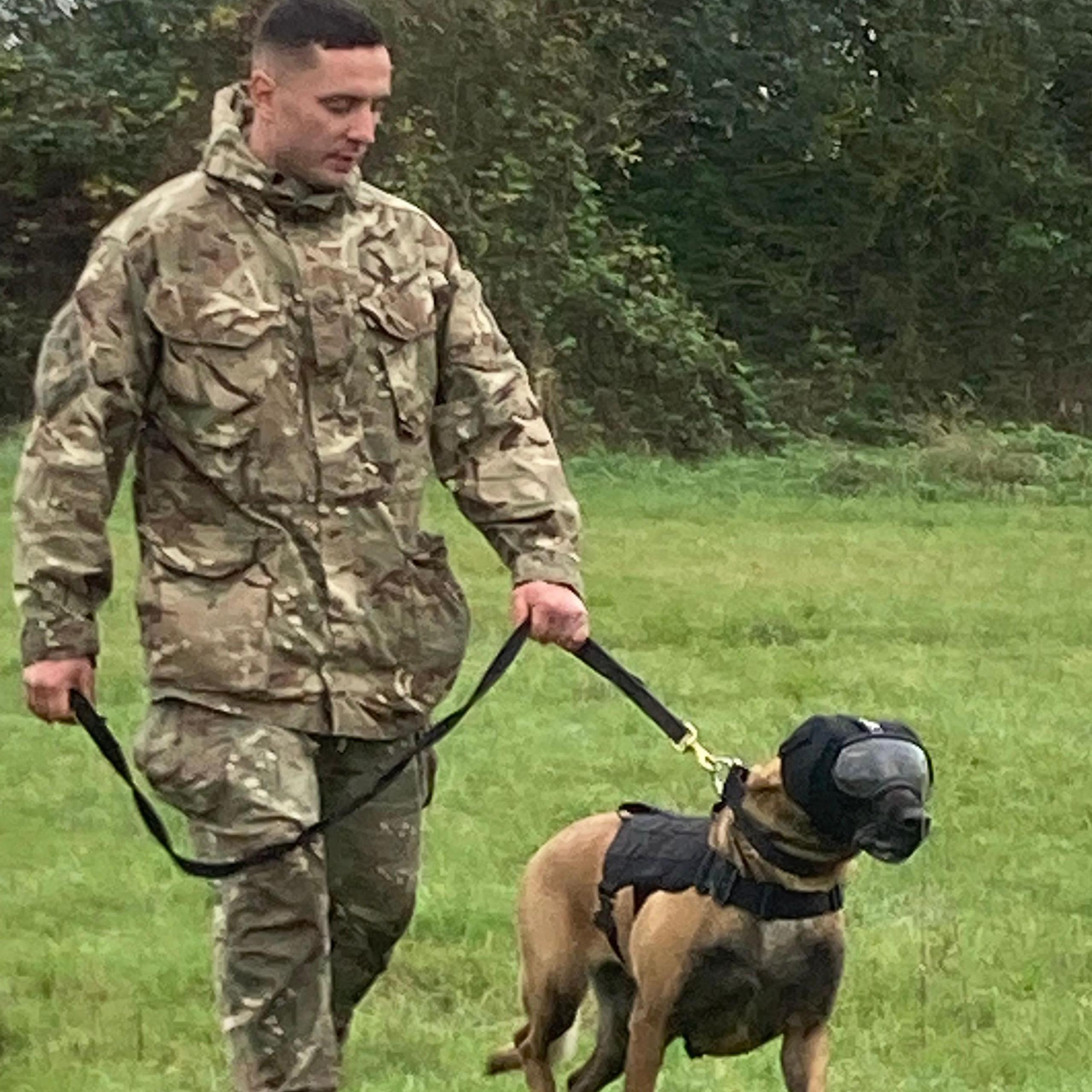
The regiment trains in Rutland for deployment at home and overseas
They are trained in two main roles - detection, and protection, seeking out explosives, arms, vehicles and drugs, and providing protection and assistance to their handlers.
Not all of the jobs for the dogs are military-led, with their skills sometimes being called upon by the emergency services and other agencies.
Handler L/Cpl Sparks said: "When you're licensed with the dog, you can get called out to anywhere.
"The dogs often help the UK police, search areas and assist. It's pretty cool."
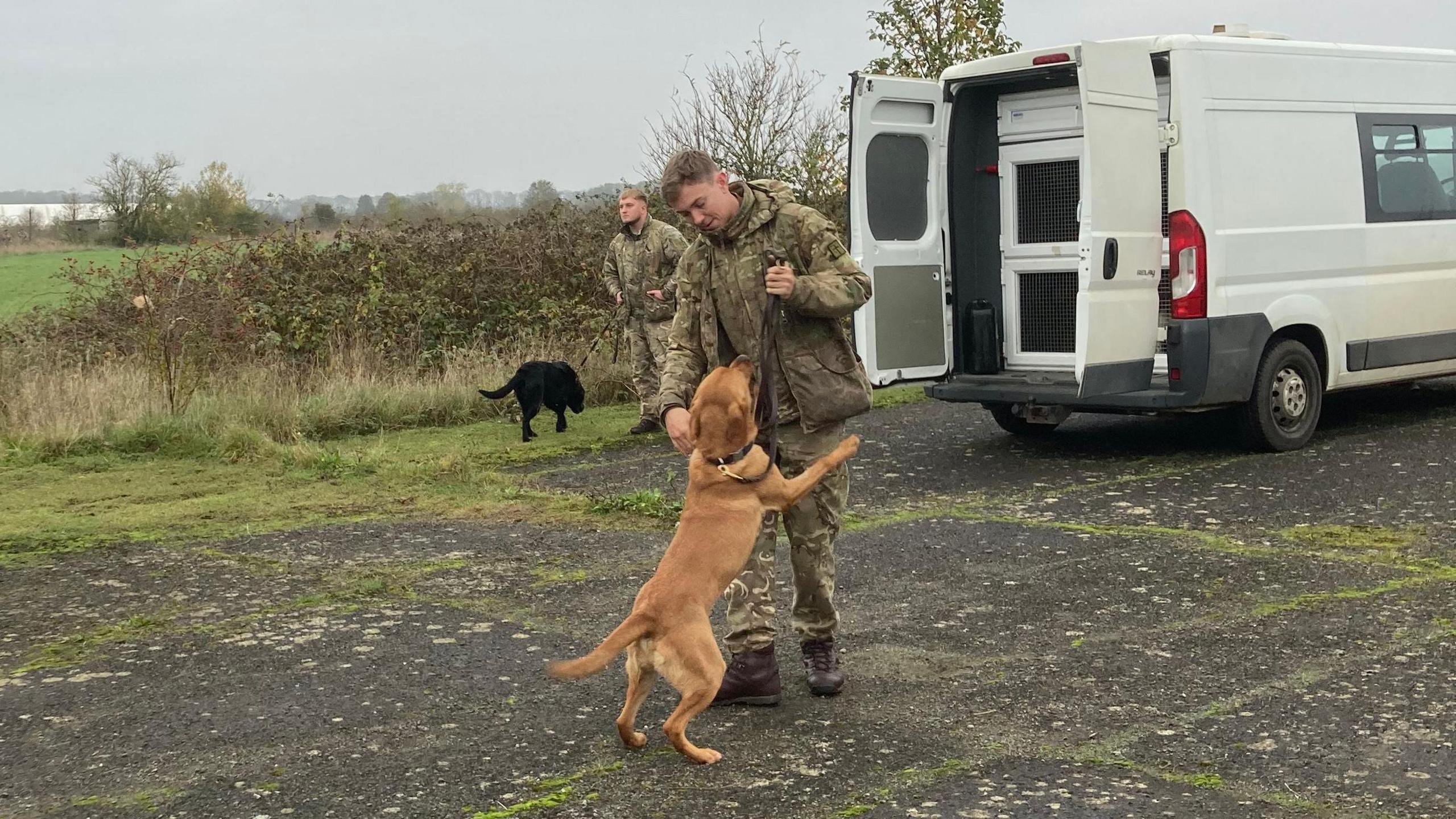
Handlers and their canine companions form strong bonds
A variety of breeds make up the regiment's 200-plus military working dogs and reservists, from German shepherds, Belgian shepherds and Dutch shepherds to springer spaniels and Labradors.
Animals chosen for the regiment are selected by the MoD for qualities like intelligence, loyalty and bravery.
Lt Col Ann O'Flynn, the regiment's commanding officer, said: "Over the last 15 or 20 years, the requirement for working dogs has hugely varied, from our time in Afghanistan and Iraq, where numbers were swelled considerably based on the demand for increased working dog support.
"All of our efforts are trained towards our front-line assets, the dogs - they're our stars."
Get in touch
Tell us which stories we should cover in Leicester
Follow BBC Leicester on Facebook, external, on X, external, or on Instagram, external. Send your story ideas to eastmidsnews@bbc.co.uk, external or via WhatsApp, external on 0808 100 2210.
- Published6 November 2024
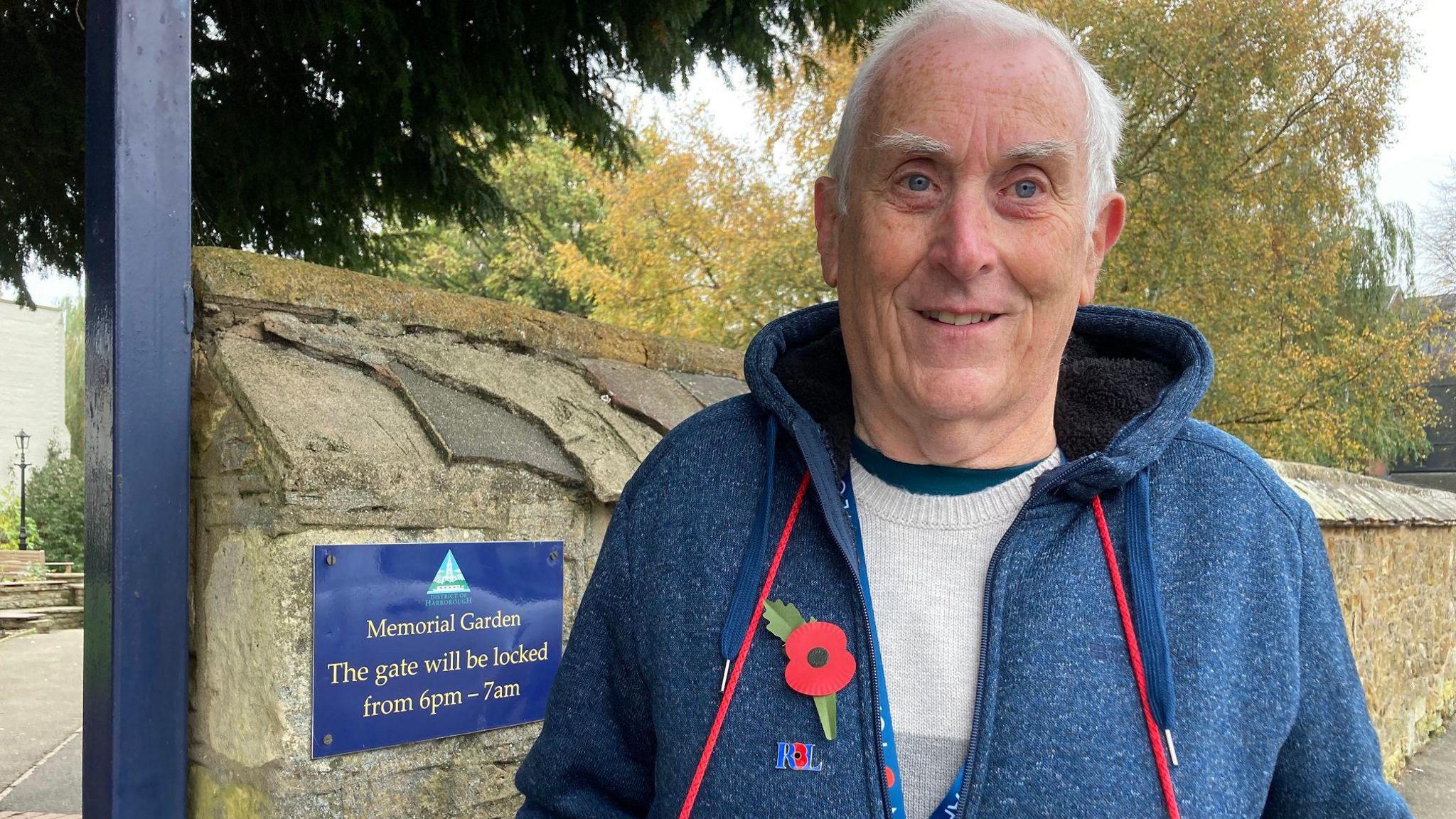
- Published30 October 2024
